 Petzlover
Petzlover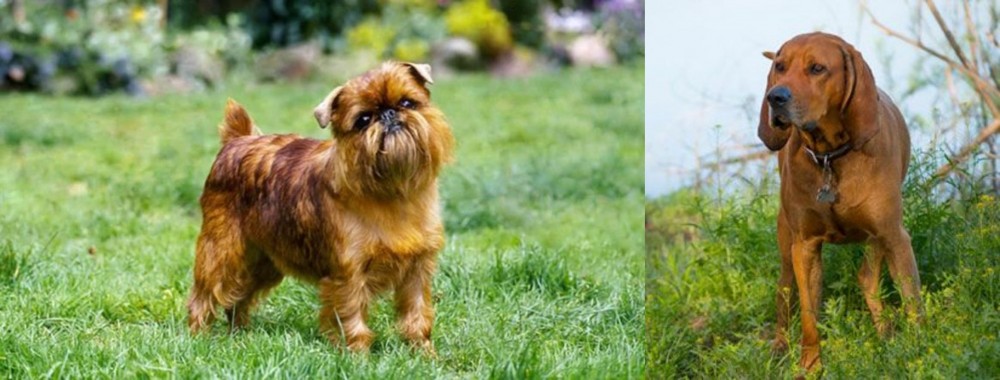 Brussels Griffon is originated from Belgium but Redbone Coonhound is originated from United States. Brussels Griffon may grow 50 cm / 19 inches shorter than Redbone Coonhound. Brussels Griffon may weigh 26 kg / 57 pounds lesser than Redbone Coonhound. Both Brussels Griffon and Redbone Coonhound has almost same life span. Brussels Griffon may have less litter size than Redbone Coonhound. Brussels Griffon requires Moderate Maintenance. But Redbone Coonhound requires Low Maintenance
Brussels Griffon is originated from Belgium but Redbone Coonhound is originated from United States. Brussels Griffon may grow 50 cm / 19 inches shorter than Redbone Coonhound. Brussels Griffon may weigh 26 kg / 57 pounds lesser than Redbone Coonhound. Both Brussels Griffon and Redbone Coonhound has almost same life span. Brussels Griffon may have less litter size than Redbone Coonhound. Brussels Griffon requires Moderate Maintenance. But Redbone Coonhound requires Low Maintenance
 The Brussels Griffon is one of the three different types of Griffons. There is the Belgian, the Petit, and the Brussels Griffon. “Griffon” means wiry and the Brussels Griffon lives up to that moniker. The Brussels Griffon’s coat is longer than that of the Belgian Griffon and the Petit Brabanon (Griffon) has a smooth, short coat. The breed is probably originally developed by crossing Belgian street dogs with the Affenpinsher as early in the 1800’s. They were favored by the cabbies in Brussels as guard dogs. They were also bred to hunt rats. Sometime toward the end of the 19th century, the Griffon was again crossed this time with a pug. This accounts for the type of head that the Brussels Griffon has, namely a brachycephalic head. It also accounts for the smooth coat of the Petit Griffon. The modern-day Griffon may also have been crossed at some time with one or more of these breeds: the English Toy Spaniel, the Irish Terrier and the Yorkshire Terrier.
The Brussels Griffon is one of the three different types of Griffons. There is the Belgian, the Petit, and the Brussels Griffon. “Griffon” means wiry and the Brussels Griffon lives up to that moniker. The Brussels Griffon’s coat is longer than that of the Belgian Griffon and the Petit Brabanon (Griffon) has a smooth, short coat. The breed is probably originally developed by crossing Belgian street dogs with the Affenpinsher as early in the 1800’s. They were favored by the cabbies in Brussels as guard dogs. They were also bred to hunt rats. Sometime toward the end of the 19th century, the Griffon was again crossed this time with a pug. This accounts for the type of head that the Brussels Griffon has, namely a brachycephalic head. It also accounts for the smooth coat of the Petit Griffon. The modern-day Griffon may also have been crossed at some time with one or more of these breeds: the English Toy Spaniel, the Irish Terrier and the Yorkshire Terrier.
By 1880, the breed was recognized and appeared in the Brussels Exhibition of 1880. They were also found in paintings of the same era by the Flemish painter, Van Eyck. In the beginning of the 20th century, the breed was extremely popular with the nobility in Belgium. As with so many other breeds, the number of Brussels Griffon was greatly reduced during the First World War. It did not take them long however to make a comeback after the war. Their popularity then spread around the globe.
The European FCI considers the Brussels Griffon, the Belgian Griffon and the Petit Brabancon (Griffon) to be three separate breeds with no interbreeding among them. They are shown as three separate breeds in Europe, with the difference between the Belgian and Brussels being the accepted colors. The Brussels is only red in color while the Belgium Griffon can be in all other colors. In the United States the three types of Griffons are considered one breed with three varieties. Only the Brussels Griffon is recognized by the AKC. The difference in coat and color make for the different varieties in the U.S.
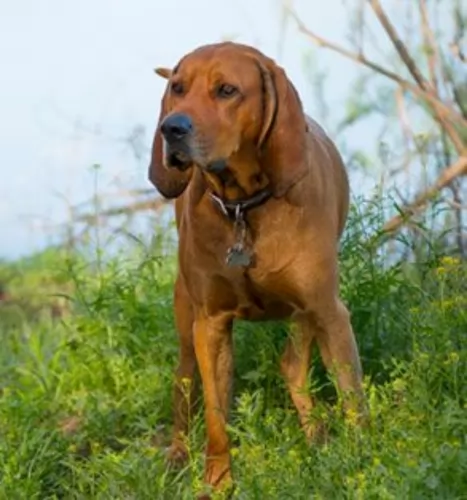 The Redbone Coonhound has always had a busy life hunting bear, deer and cougar. It is thought that this dog descends from from Bloodhounds, Foxhounds and Irish Hounds.
The Redbone Coonhound has always had a busy life hunting bear, deer and cougar. It is thought that this dog descends from from Bloodhounds, Foxhounds and Irish Hounds.
Hailing from America, this dog has been registered with the American Kennel Club since 2009.
It was during the 18th century that many European-type hunting dogs were imported to America. Over time, Southern hunters bred with stamina and this ultimately lead to the emergence of coonhounds.
 All three types of Griffons are toy size dogs with short, thick bodies and distinctive brachycephalic heads. Regardless of coat color their muzzles and whiskers are black, and they have large eyes, also black, a mustache and beard. They have black eyelashes and a nose that is very black. All this is set against their red, beige, black or black and tan coat. Their forehead is dome shaped and the muzzle is short. The breed has small ears that are high up on the dog’s head. The ears might be cropped in the United States but would not be in Europe. The lower jaw is prominent and the jaw itself is undershot. They have black toenails and pads, with strong and muscular hind legs. The Griffon has a docked, high set tail in the U.S. and a full tail in Europe and all of the United Kingdom.
All three types of Griffons are toy size dogs with short, thick bodies and distinctive brachycephalic heads. Regardless of coat color their muzzles and whiskers are black, and they have large eyes, also black, a mustache and beard. They have black eyelashes and a nose that is very black. All this is set against their red, beige, black or black and tan coat. Their forehead is dome shaped and the muzzle is short. The breed has small ears that are high up on the dog’s head. The ears might be cropped in the United States but would not be in Europe. The lower jaw is prominent and the jaw itself is undershot. They have black toenails and pads, with strong and muscular hind legs. The Griffon has a docked, high set tail in the U.S. and a full tail in Europe and all of the United Kingdom.
The rough coated types have a dense and wiry coat and the standard encourages the hardest possible wire coat. Their heads are also wiry and long around the chin, cheeks, nose and eyes. They should be hand-stripped and never left ungroomed. The coat can matt if not taken care of adequately. One of the most important features of the Brussels Griffon is its human like face or monkey like appearance.
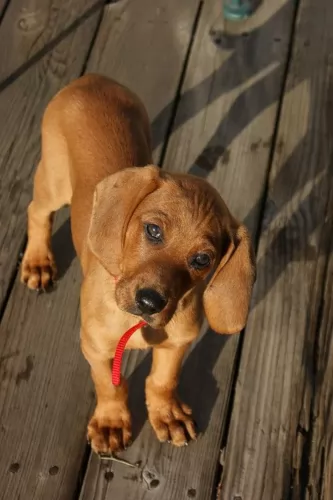 This beautiful, shiny red dog is medium-sized and stands at between 53 and 70cm at the shoulders and weighs between 20 and 32kg.
This beautiful, shiny red dog is medium-sized and stands at between 53 and 70cm at the shoulders and weighs between 20 and 32kg.
The dog’s coat is short and smooth with maybe just a tiny bit of white found around the feet and chest area. He is lean and muscular with strong, straight legs and a deep chest. The ears are floppy and the tail, traditionally docked, is often left long these days.
The paws are large and webbed and when the dog is excited, the tail is held high
The Redbone Coonhound is an affectionate dog who wants to please his owners. He just loves his human family and would be beside himself if he were locked outside day after day.
He is a social dog who should be allowed time indoors and out. They make splendid playmates for children too, and get along well with other animals in the house.
Because they’re independent and strong willed, he will need to be trained and socialized to ensure he is well mannered and obedient.
He is an active dog and will require a good bout of exercise. He is vocal, known for his baying type of bark, and training will keep this kind of baying under control. Training is also necessary as this dog is stubborn. He is intelligent enough to learn, and once trained, is gentle and calm.
 The Brussels Griffon is sociable, alert and very intelligent. She is very energetic, playful and loving. They bond deeply with their family. Housebreaking might be a challenge as it is with all toy/small breeds. They are incredibly lonely and restless when their people are not around them. They have great personalities, terrier like characteristics, and deep loyalty to their humans. They are great companions and love children. Just remember how small they are. They are susceptible to Little Dog Syndrome if the human does not establish themselves as the alpha right away.
The Brussels Griffon is sociable, alert and very intelligent. She is very energetic, playful and loving. They bond deeply with their family. Housebreaking might be a challenge as it is with all toy/small breeds. They are incredibly lonely and restless when their people are not around them. They have great personalities, terrier like characteristics, and deep loyalty to their humans. They are great companions and love children. Just remember how small they are. They are susceptible to Little Dog Syndrome if the human does not establish themselves as the alpha right away.
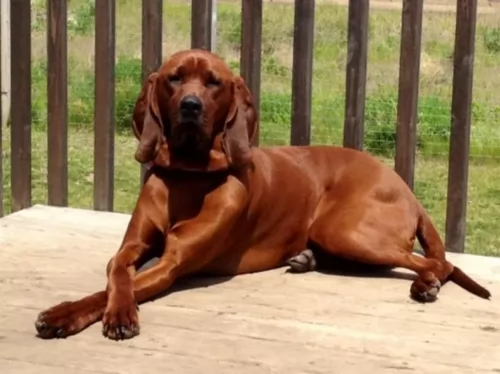 The Redbone loves the company of his human family. He is such a friendly dog,getting on well with everyone in the family, including the children and other pets.
The Redbone loves the company of his human family. He is such a friendly dog,getting on well with everyone in the family, including the children and other pets.
He is a hunting dog and always ready to be part of any activities his human family is involved in. He is gentle and easy going, and and having him in your life is guaranteed to bring in a lot of joy and sunshine.
 The Brussels Griffon is susceptible to many of the diseases and genetic conditions that many other toy or small dogs have. Flat-faced breeds like the Griffon also suffer from difficulty with breathing under certain weather conditions and they are known to snore. They should not be kept in hot, sunny, humid climates for this reason. They may also display patella luxation (slipping kneecaps) and hip dysplasia. Lastly, they are susceptible to ear infections. Dams are often in need of cesarean sections to deliver their litters. They have very serious health issues due to the head shape and flat face. These might include eye and respiratory issues and syringomyelia – a deadly neurological disease. They are susceptible to epilepsy, dental issues and eye lash issues.
The Brussels Griffon is susceptible to many of the diseases and genetic conditions that many other toy or small dogs have. Flat-faced breeds like the Griffon also suffer from difficulty with breathing under certain weather conditions and they are known to snore. They should not be kept in hot, sunny, humid climates for this reason. They may also display patella luxation (slipping kneecaps) and hip dysplasia. Lastly, they are susceptible to ear infections. Dams are often in need of cesarean sections to deliver their litters. They have very serious health issues due to the head shape and flat face. These might include eye and respiratory issues and syringomyelia – a deadly neurological disease. They are susceptible to epilepsy, dental issues and eye lash issues.
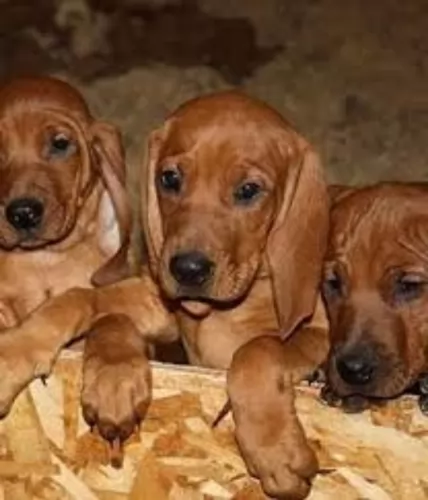 The Redbone Coonhound is generally a healthy breed that can reach 12, 13, 14 years of age if well cared for.
The Redbone Coonhound is generally a healthy breed that can reach 12, 13, 14 years of age if well cared for.
There are some common dog illnesses that this do can succumb to and which are worth knowing about as they affect so many dogs. These are cancer, bloat, skin allergies, ear infections and hip dysplasia.
If you notice that your active dog is subdued and lethargic, it is your responsibility to get your 4-legged child to the vet to be looked over.
 The Brussels Griffon can choke easily so take care with the size of kibble you feed them. They need about one fourth to one half of a cup of high quality dry food that is designed for small or toy dogs. Divide this amount into two or three small meals per day. Puppies should be fed more often than adults but never feed just one large meal per day. Be careful that your Brussels Griffon does not become obese.
The Brussels Griffon can choke easily so take care with the size of kibble you feed them. They need about one fourth to one half of a cup of high quality dry food that is designed for small or toy dogs. Divide this amount into two or three small meals per day. Puppies should be fed more often than adults but never feed just one large meal per day. Be careful that your Brussels Griffon does not become obese.
The Brussels Griffon, regardless of type has some very serious health issues due to the shape of their heads.
Brachycephalic Syndrome – This can cause all the respiratory issues as well as eye issues such as cataracts and corneal ulcers.
This is a very playful and energetic breed that needs at least some exercise every day. They love to play with their family. They are smart and easy to train. They love agility, obedience, barn hunt and tracking activities. You can just as effectively play with and exercise your Brussels inside as well as out.
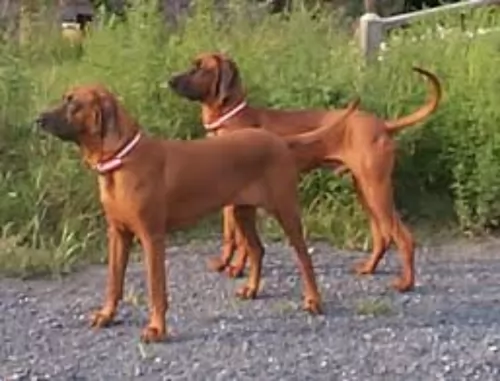 Hunting dogs such as the Redbone Coonhound will need a good deal of exercise to stay happy and healthy. The breed is best suited to the countryside or suburbs as opposed to city dwelling.
Hunting dogs such as the Redbone Coonhound will need a good deal of exercise to stay happy and healthy. The breed is best suited to the countryside or suburbs as opposed to city dwelling.
He won’t be content with just a walk every day but is the kind of dog that will want to be free from a leash and be running far and wide. When at home, involve him in some rope- and ball games.
The Redbone Coonhound isn’t going to be a dog that you have to fuss over. His short coat can be brushed twice a week to keep him looking beautifully shiny. When you brush him, make sure you check for any unusual lumps.
He has floppy ears, so look inside his ears for signs of redness and discharge. This could be an indication of an ear infection. Also check inside his mouth as he could have a rotting tooth which could be causing him a lot of pain and also be poisoning his body.
You want to ensure your beautiful Redbone Coonhound stands every chance to enjoy good health. Every dog owner should try to feed their dog the best food there is.
There are some good commercially manufactured foods on the market and these are wonderfully convenient to use for your dog. However, you want to provide him with some good homemade food too.
Dogs thrive on simplicity and consistency with their diets because then it prevents upset stomachs. Some home-cooked food such as boiled chicken, sweet potatoes, brown rice or pasta, carrots and spinach will be perfect for him.
Chop the food up finely and add it into the dry kibble once or twice a week. Raw meat can also be added in occasionally to promote good skin health. Make sure your pet is never without a constant supply of fresh, cool water.